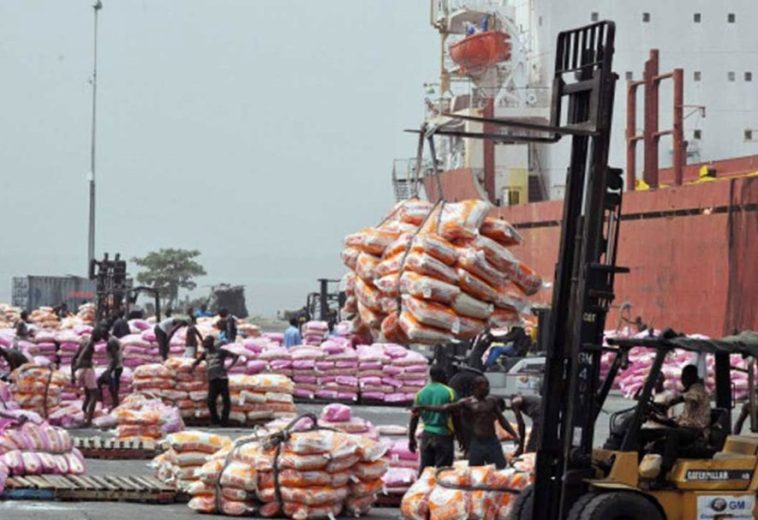Gauteng is not merely a province; it is the beating heart of South Africa’s economy. As the economic powerhouse of the nation, Gauteng serves as both the financial and industrial engine driving the country forward. Although the smallest province by land size, it contributes 35% of South Africa’s total GDP, making it indispensable to the country’s economic health. With its impressive blend of historical significance, modern development, and diverse population, Gauteng has become a living symbol of South Africa’s economic potential, bustling cities, and boundless opportunities.
Gauteng has the largest number of employed people, approximately 5 million. Despite the devastating job losses caused by the COVID-19 pandemic, the economy demonstrated resilience and rebounded with over 449,000 jobs regained.
READ ALSO: Why East Africa’s Economic Projections Matter to the Rest of Africa
Gauteng’s Economic Backbone
Gauteng’s economy is a study in contrasts, balancing innovation with industrial strength. From the impressive skyscrapers of Johannesburg to the heavy industry in Ekurhuleni, the province forms the heartbeat of South Africa’s economy. Johannesburg and Pretoria, its two major cities, serve as key hubs, hosting a convergence of finance, government, and business.
The province is home to key sectors such as financial services, manufacturing, and mining. By 2023/2024, these industries continued to thrive. Gauteng has evolved from its mining roots into a modern industrial hub, with a booming automotive sector, steel production, and technology-based industries. A recent surge in green energy projects aimed at reducing the carbon footprint of local industries highlights Gauteng’s forward-thinking approach to sustainable economic growth.
Gauteng continues to attract substantial investment in special economic zones (SEZs), such as those surrounding OR Tambo International Airport, one of Africa’s busiest hubs. These SEZs play a pivotal role in diversifying the provincial economy by offering incentives to industries such as electronics, pharmaceuticals, and automotive parts manufacturing. Benefitting from streamlined regulatory policies and robust infrastructure, these areas are magnets for both local and international investors.
Johannesburg: The City of Gold
Johannesburg, often referred to as the “City of Gold,” epitomises Gauteng’s role as the economic epicentre of South Africa. Originally built on the back of the gold rush of the late 1800s, Johannesburg has since evolved into a modern metropolis that attracts millions from across the globe. The city’s skyline, dominated by sleek glass towers and bustling business districts, reflects not only South Africa’s economic power but also the province’s commitment to innovation and progress.
Johannesburg is home to the Johannesburg Stock Exchange (JSE), the largest stock exchange in Africa and a major player in global financial markets. The JSE’s continuous growth reinforces Gauteng’s position as a financial powerhouse. In 2023, Johannesburg’s financial sector alone contributed more than R300 billion to the provincial economy, underscoring the city’s importance on the global stage.
In addition to finance, Johannesburg is rapidly becoming a hub for start-ups and technology companies. With emerging industries such as fintech, digital media, and tech innovation, the city is nurturing a new wave of entrepreneurs and investors. Furthermore, the influx of global companies solidifies Gauteng’s position as a gateway to Africa’s expanding consumer market.
Gauteng’s Infrastructure Revolution
As the cornerstone of South Africa’s economy, Gauteng is purposefully building its future. The province has embarked on ambitious infrastructure projects to remain at the forefront of African economic development. Key developments include the Gautrain rapid rail system, which links Johannesburg, Pretoria, and the airport, providing a world-class public transport network that boosts business and trade across the region. In 2023, Gautrain reported a significant increase in commuter numbers, underlining its role in connecting Gauteng’s economic hubs.
Roads, bridges, and highways across Gauteng are continually being expanded and improved to meet the demands of a growing population and economy. Ekurhuleni, one of Gauteng’s fastest-growing regions, has seen significant upgrades in infrastructure, with additional roads and industrial parks accommodating the increasing number of businesses and residents.
Beyond traditional infrastructure, Gauteng is investing heavily in green infrastructure and renewable energy. In 2024, the Gauteng Provincial Government allocated over R20 billion to solar energy projects, aligning with national efforts to address South Africa’s power crisis and ensure energy security. This focus on sustainable development positions Gauteng as a leader in green energy, reinforcing its long-term economic strategy of balancing growth with environmental stewardship.
Job Creation and Skills Development
Despite South Africa’s broader challenges with unemployment, Gauteng is leading the way in job creation and skills development. With a population exceeding 15 million, the province is a melting pot of diverse cultures, all contributing to its vibrant economy.
In 2023, Gauteng reduced its unemployment rate by 2.5%, thanks to initiatives focused on creating sustainable employment opportunities for youth, women, and other vulnerable groups. The Gauteng Youth Employment Accelerator, for instance, has provided thousands of young people with vocational training, apprenticeships, and mentorships, bridging the skills gap and boosting employment in both traditional and emerging sectors.
Top-tier universities such as the University of the Witwatersrand (Wits) and the University of Pretoria continue to produce highly skilled graduates equipped for the modern workforce. These institutions, in collaboration with provincial government and industry leaders, are developing educational models that combine academic learning with practical, industry-focused training.
Gauteng’s Contribution to South Africa’s Prosperity
Gauteng is far more than just the engine of South Africa’s economy; it is the lifeblood of the nation’s fiscal health. The province generates the lion’s share of national tax revenue, with sectors such as financial services, manufacturing, trade, and technology delivering significant returns. In 2023, Gauteng’s contribution to South Africa’s total exports amounted to R1.2 trillion, cementing its central role in the national economy.
Moreover, Gauteng’s dominance in the retail and wholesale trade sectors bolsters its economic strength. The province’s increasing appeal to international retailers and wholesalers has transformed it into a hub for consumer goods, services, and commodities vital to South Africa’s economy.
Symphony of Possibility
Gauteng’s economy is a complex yet harmonious blend of industries, cultures, and ambitions. From its industrial roots to its future as a smart province embracing technology, sustainability, and innovation, Gauteng demonstrates its vision of progress. The people of Gauteng, driven by pride and a collective will to succeed, continue to propel the province towards new economic frontiers.
As its infrastructure improves, industries diversify, and global demand for innovation grows, Gauteng will remain South Africa’s most vital economic player. While challenges persist, the opportunities in Gauteng are boundless, fuelled by resilience, vision, and an unwavering belief in the future.
Gauteng is not merely a province; it is a microcosm of South Africa’s ambitions. It is where economic dreams are realised, where opportunities abound, and where progress is actively built. As Gauteng evolves, it will continue to stand as a pillar not only for South Africa but for the entire African continent. Across its cities, towns, and industrial hubs, Gauteng heralds a new dawn of economic growth, powered by its indomitable spirit and relentless drive for progress.




